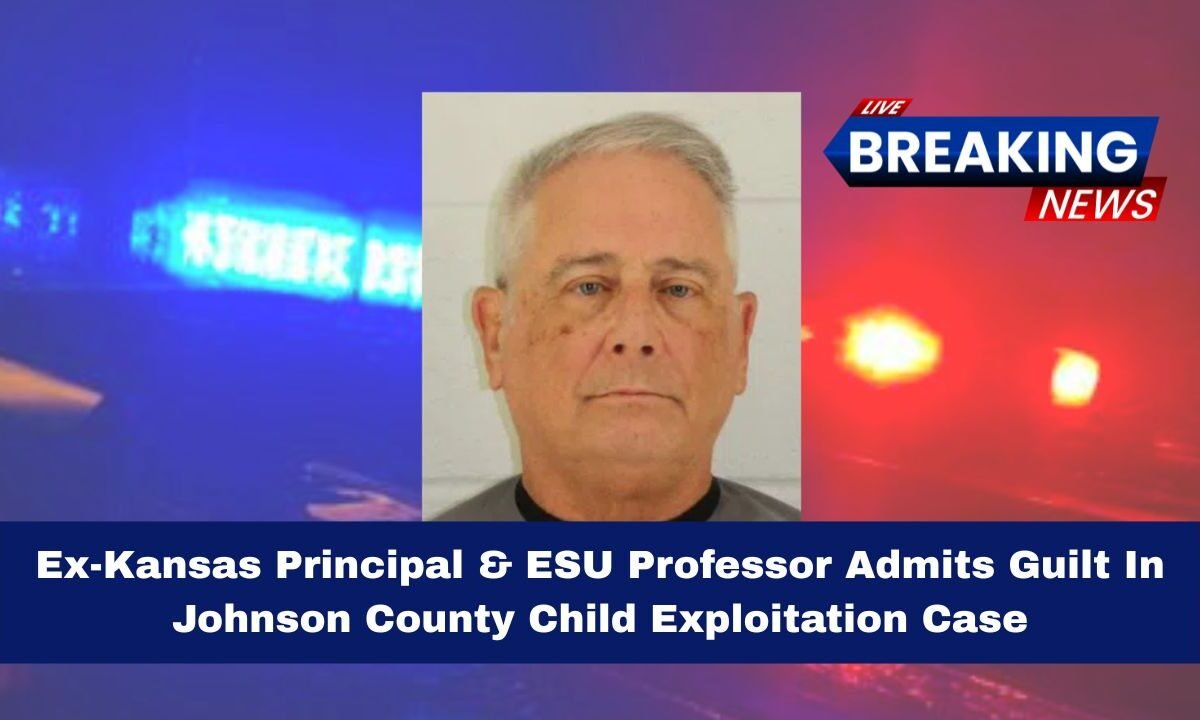In a high-profile development, Howard Pitler, once honored as Kansas Principal of the Year and later a professor at Emporia State University (ESU), has pleaded no contest to charges of indecent solicitation.
The case has drawn widespread attention given Pitler’s stellar reputation in education and his long history of leadership roles.
Under his plea agreement, Pitler faces up to 38 months in prison, must register as a sex offender, and forgo a request for probation.
Sentencing is scheduled for November 24, 2025. Before stepping down to accept the plea, he was expected to go to trial next month in Johnson County, Kansas.
Below, we present all the latest facts, context, and implications of this disturbing case.
Background & Professional Profile
Before his arrest, Pitler had built a respected career in educational leadership:
- He was named Kansas Principal of the Year in 1997 while serving in USD 259, Wichita.
- He earned national recognition, including titles like National Distinguished Principal, Apple Distinguished Educator, and Smithsonian Laureate.
- In 2018, he joined ESU’s Teachers College, teaching school leadership and middle/secondary teacher education until his arrest.
- His arrest occurred in October 2024, following charges tied to an alleged incident in February 2023 involving indecent solicitation of a minor under 14.
Pitler was placed on administrative leave at ESU following the arrest.
Case Timeline & Charges
| Date / Time | Event | Details |
|---|---|---|
| February 2023 | Alleged incident | Indecent solicitation (electronic) involving a minor under 14 years old |
| October 2024 | Arrest & initial charges | Pitler arrested in Overland Park, held on bond; charged with electronic solicitation |
| May 2025 | Status hearing | Court set hearing in Johnson County for June 17 |
| October 2025 | Plea accepted | Pitler pleads no contest to two counts of indecent solicitation |
| November 24, 2025 | Sentencing | Pitler will be sentenced; plea deal sets 38 months prison and sex offender registration |
Plea Deal & Sentencing Details
Under the plea agreement, Howard Pitler is expected to:
- Serve 38 months in prison (just over 3 years)
- Not request probation
- Register as a sex offender permanently
- Not go to trial, as his plea replaces the planned trial in Johnson County
- Sentencing is set for November 24, 2025
This resolution essentially forecloses a full jury trial, though the court must still formally accept the agreement.
Legal & Social Implications
1. Reputation & Trust Shattered
Pitler was once a lauded educator, known for his work in leadership and teaching.
His admission marks a dramatic fall from grace and raises difficult questions about trust, oversight, and protection of vulnerable populations in educational circles.
2. Impact on ESU & Legacy
ESU’s reputation may suffer; alumni, students, and faculty have to grapple with the dissonance between his professional contributions and these criminal admissions.
The case also opens scrutiny of hiring practices, background checks, and safeguarding policies.
3. Victim & Community Concerns
The alleged victim was under 14, making the crime especially serious in the eyes of the law and public opinion. The plea deal and sentencing will be watched closely by survivors, community members, and advocacy groups.
4. Legal Precedent & Wider Implications
Such high-profile cases can deter misconduct and encourage stricter accountability in education systems. They also emphasize the critical role of law enforcement, judicial processes, and victim advocacy in protecting minors.
The case of Howard Pitler, a once-respected principal and university professor, ending in a no contest plea for indecent solicitation is a stark and sobering turn.
His acceptance of the plea—along with 38 months’ incarceration and sex offender registration—marks a dramatic fall for a figure once held up as a leader in education.
As the November 24 sentencing approaches, many will be watching—victims, community members, educators, and legal experts alike.
The repercussions extend beyond one individual: this case challenges institutions to reevaluate protections for minors and accountability in education across the board.




